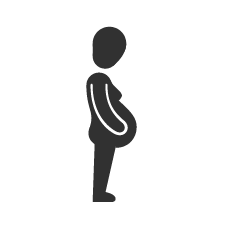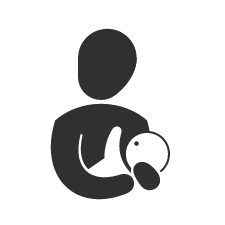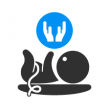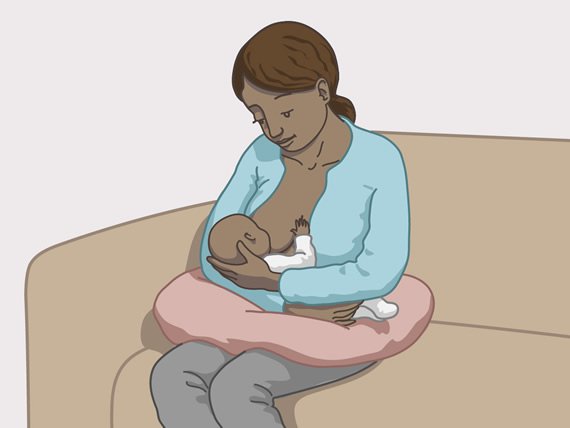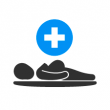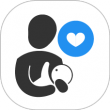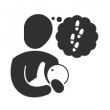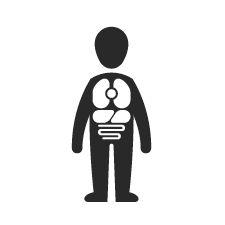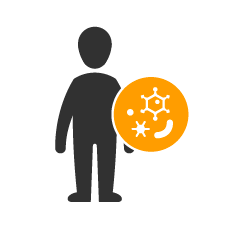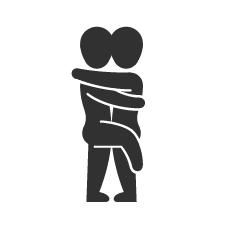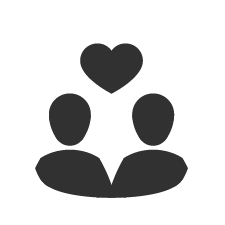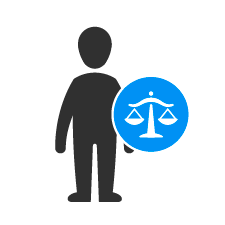The first few days after giving birth
Shortly after giving birth:
- The baby's breathing, skin colour, muscle tension, heartbeat and the response to stimuli are examined.
- The baby receives an injection of vitamine K.
- Then you get to hold your baby. If you have had a caesarean section, your partner will be able to hold the baby until your wound has been treated.
- If your baby starts to look for the breast, you can breast-feed for the first time. Your midwife can help you to ensure that the baby gets a good grip.
- The midwife or nurse weighs the baby and measures its height and the circumference of its head. She/he then dresses the baby or wraps it in a blanket.
- There is a lot focus on getting the baby to breast-feed properly. Both you and your baby need time and practice on finding good breast-feeding techniques. It is normal that the baby wants to be fed often.
The first few days:
- When the baby is one day old the paediatrician examines the baby. The heart and lungs, the body, the spine, the reflexes, the hips and the eyes of the baby are examined.
- The baby's hearing is tested.
- The baby is tested for rare metabolic diseases. A small blood sample is taken. If this isn't done before you leave the hospital, you need to return to the hospital to take the test. In some municipalities a midwife can visit you at home to perform the test.
- The baby is weighed two more times: First two to four days after birth, and then once more four to ten days after birth.
- Many municipalities offer home visits from the midwife within 3 days after you leave the hospital.
A newborn baby should not be irritable, inconsolable or weak. This might be signs of a disease. Contact the hospital if your worry that your baby is ill.
In the following weeks
- After leaving the hospital you get home visits from a midwife and/or public health nurse. Later consultations will be given at the local public health centre. You will receive a booklet where the consultations are recorded.
- The baby may lose weight during the first week after birth, even if it is fed regularly. It is normal that the baby loses a little weight. You should not feed the newborn baby any other food or drink other than breast milk, except when there is a medical reason and you have clarified this with a health professional.
- After about six weeks the baby will get some vaccinations.
A healthy baby has a stable temperature, urinates and defecates regularaly, gives signs that it wants to be fed, and sucks well on your breast or the bottle. If you worry that your baby is ill or is not geeting enough food, you need to contact the hospital. They are open at all hours.
Maternal and child health centres
The maternal and child health centre is a service offered pregnant women, children between the ages 0 and 5, and their parents. The public health centre is staffed with a midwife, public health nurse, doctor and a physical therapist. The public health centre works together with other municipal services and with the local hospital.
The public health centre offers health care to all children staying in Norway free of charge. The service provides medical screenings, offers vaccinations and provides advice and counselling for parents. Your child has a right to medical check-ups in the municipality where you live, or stay temporarily. Children without permanent residency in Norway have the same rights.
In some municipalities, the public health centre provides prenatal care and midwife services.
Contact the municipal health and care services or look up the webpage of the municipality to get more information about midwives and public health centres in the municipality where you stay.

